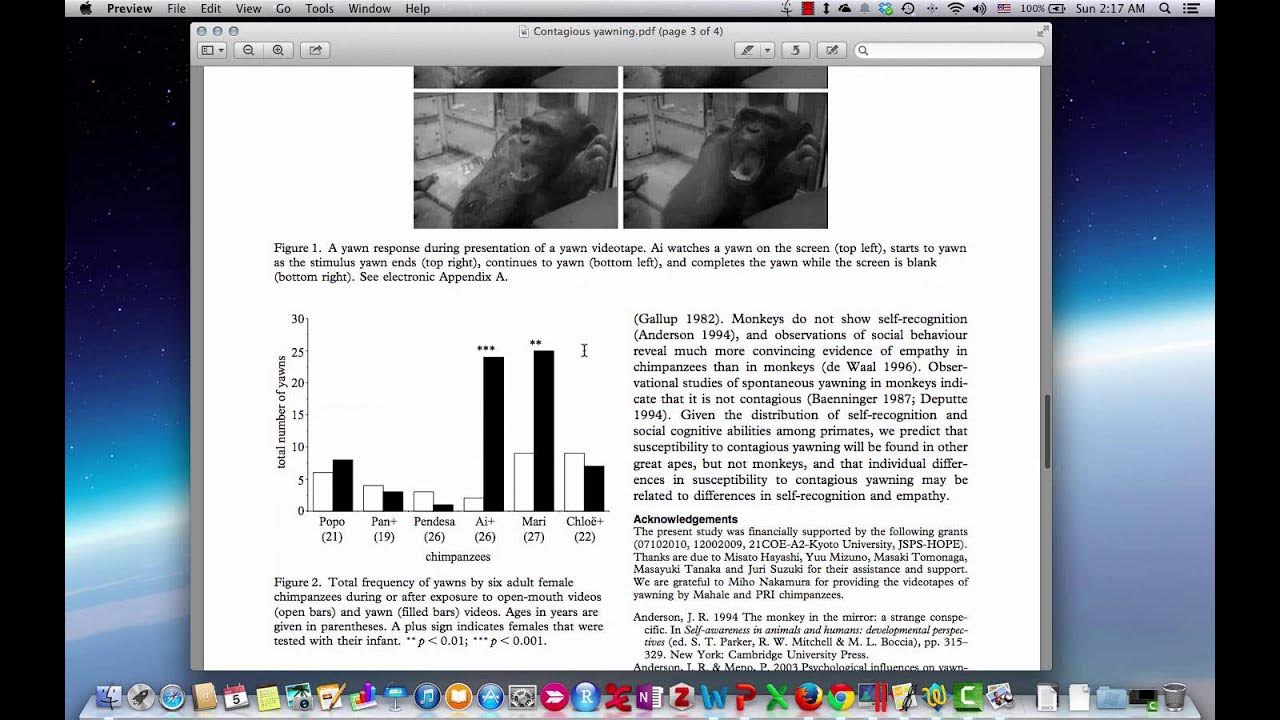My process of reading, understanding, and remembering research papers
Summary
TLDRThis video script outlines a structured approach to reading and understanding research papers, essential for enhancing an engineer's expertise. The speaker shares their passion for deep-diving into topics like databases, storage engines, algorithms, and distributed systems. They recommend three sources for discovering papers: Google Scholar, Hacker News, and social networks. The reading process involves three iterations: skimming for an overview, thorough reading to grasp details, and note-taking as if teaching the material. This method ensures a comprehensive understanding and retention of the research, ultimately elevating one's professional game.
Takeaways
- 🔎 The speaker emphasizes the importance of reading research papers for engineers to deepen their understanding and stay updated with advancements in their field.
- 📚 The speaker reads 50 papers annually and shares a structured process to discover, read, understand, and remember research papers.
- 🔍 Three primary sources for discovering new papers are mentioned: Google Scholar, Hacker News, and social networks like LinkedIn.
- 📈 Google Scholar is highlighted as an essential tool for finding research papers on topics of interest due to Google's ranking system.
- 🤖 Hacker News is recommended for discovering papers shared by other engineers, which can be a valuable source of new information.
- 📝 The process involves three iterations of reading each paper: skimming, thorough reading, and note-taking as if teaching the material.
- 👀 Skimming is the first step to get a general idea and form an overall theme in the mind without trying to understand every detail.
- 📖 The second iteration involves a detailed reading to understand the paper's content, highlighting key details and making connections.
- 📝 The third and final iteration is about creating handwritten notes to solidify understanding, which also helps in identifying gaps in comprehension.
- 📈 The speaker suggests that not all papers require all three iterations, and it's okay to skip a paper if it's not engaging or relevant.
- 🌐 The annotated versions of the papers read are shared on the speaker's website and Facebook, which can be a helpful resource for others.
Q & A
Why is reading research papers important for engineers according to the video?
-Reading research papers is essential for engineers as it elevates their understanding of the subject, broadens their horizons, and deepens their knowledge in areas such as databases, storage engines, advanced algorithms, and distributed systems.
What are the three main sources the speaker uses to discover new papers?
-The three main sources the speaker uses to discover new papers are Google Scholar, Hacker News, and social networks like LinkedIn where people share research papers they are reading.
How does the speaker suggest starting to read research papers?
-The speaker suggests starting by picking any paper that finds interesting or amusing and not overthinking the choice. The focus should be on enjoying the process and not on finding the 'best' paper.
What is the first iteration of the speaker's process for reading a research paper?
-The first iteration involves skimming through the paper to form a general understanding of the overall theme and to highlight interesting parts without trying to understand every detail.
What does the second iteration of the speaker's process entail?
-The second iteration is an intense read where every single line of the paper is read and understood to grasp its meaning and how it fits into the bigger picture. Key details are highlighted aggressively.
What is the purpose of the third iteration in the speaker's process?
-The third iteration involves preparing handwritten notes as if teaching the content to someone else. This helps to challenge and solidify the understanding of the material, ensuring no gaps remain in comprehension.
Why does the speaker recommend making handwritten notes during the third iteration?
-Handwritten notes help in reinforcing the understanding of the research paper by forcing the reader to explain the concepts as if teaching them, which also helps in identifying any gaps in understanding.
How does the speaker suggest managing the process of reading multiple research papers?
-The speaker suggests using a three-iteration process for each paper, with the flexibility to skip papers that do not hold interest or are not relevant after the first pass.
What does the speaker do with the papers after reading them?
-After reading the papers, the speaker adds an annotated version of them to their website and shares them on social media platforms like Facebook, which also serves as a record of their learning.
What advice does the speaker give about the effort required to read research papers?
-The speaker advises that reading research papers is an exhaustive and sometimes overwhelming process, but it is worth the effort as it significantly elevates one's understanding and skills.
How does the speaker encourage others to engage with research papers?
-The speaker encourages others to engage with research papers by sharing their own process, emphasizing the benefits, and inviting others to share the papers they are reading and making sense of.
Outlines

Cette section est réservée aux utilisateurs payants. Améliorez votre compte pour accéder à cette section.
Améliorer maintenantMindmap

Cette section est réservée aux utilisateurs payants. Améliorez votre compte pour accéder à cette section.
Améliorer maintenantKeywords

Cette section est réservée aux utilisateurs payants. Améliorez votre compte pour accéder à cette section.
Améliorer maintenantHighlights

Cette section est réservée aux utilisateurs payants. Améliorez votre compte pour accéder à cette section.
Améliorer maintenantTranscripts

Cette section est réservée aux utilisateurs payants. Améliorez votre compte pour accéder à cette section.
Améliorer maintenantVoir Plus de Vidéos Connexes

How To Read A Paper Quickly & Effectively With AI

These AI/ML papers give you an unfair advantage

Effective Reading of English Manuscript

CAT EXAM 40 Days Challenge | Important Topics To Do | CAT Exam Daily Preparation Strategy #catexam

Finding online sources for your research paper

How to Develop a STRONG Research Question | Scribbr 🎓
5.0 / 5 (0 votes)
